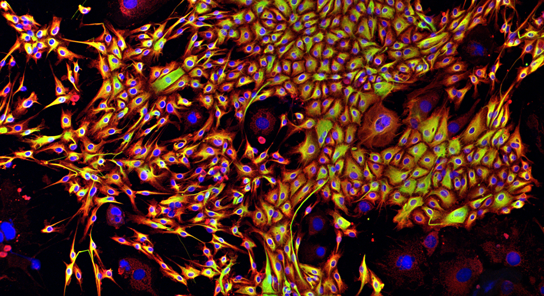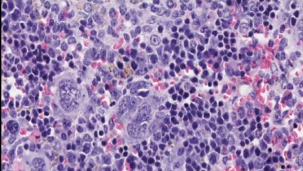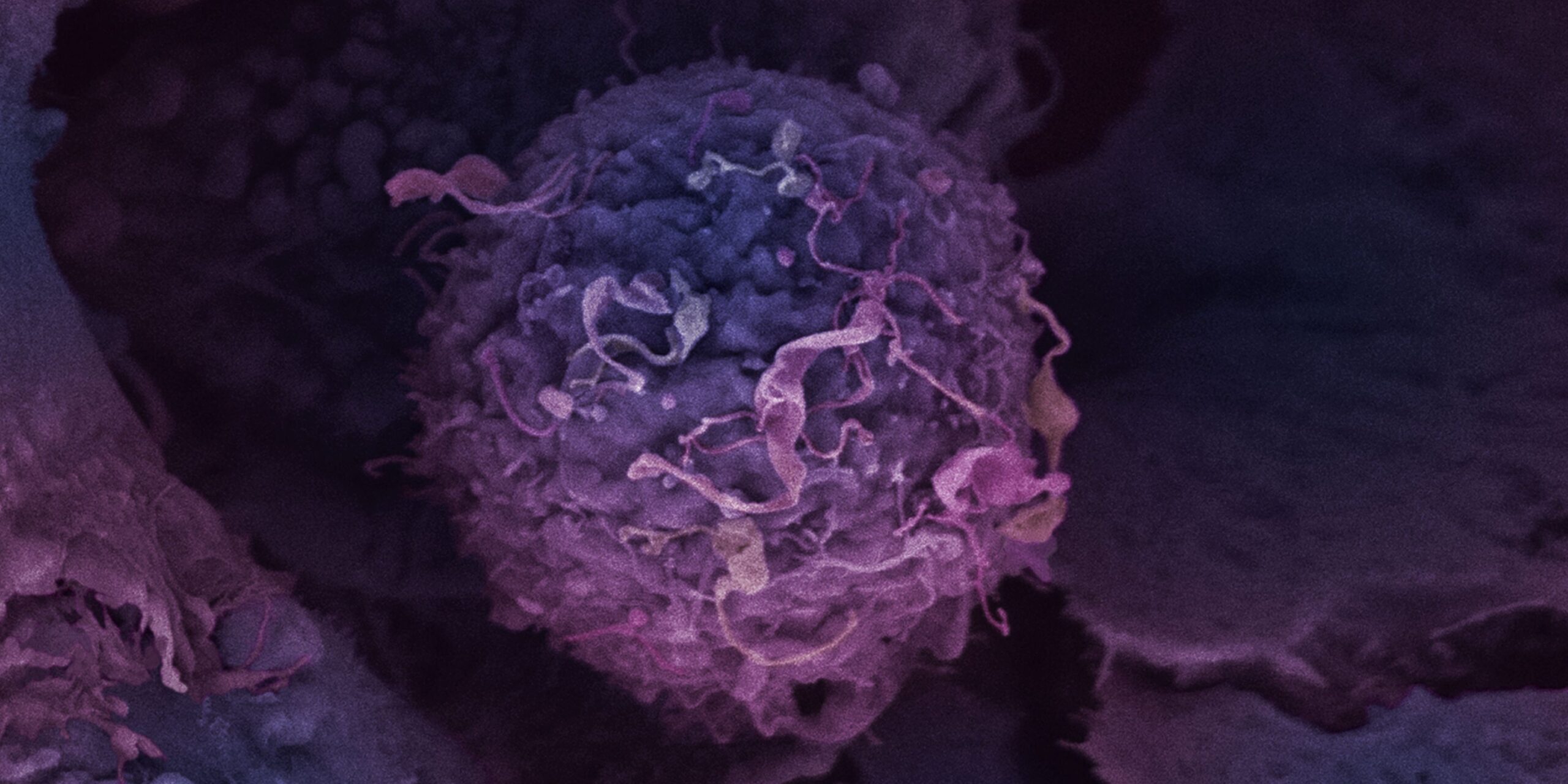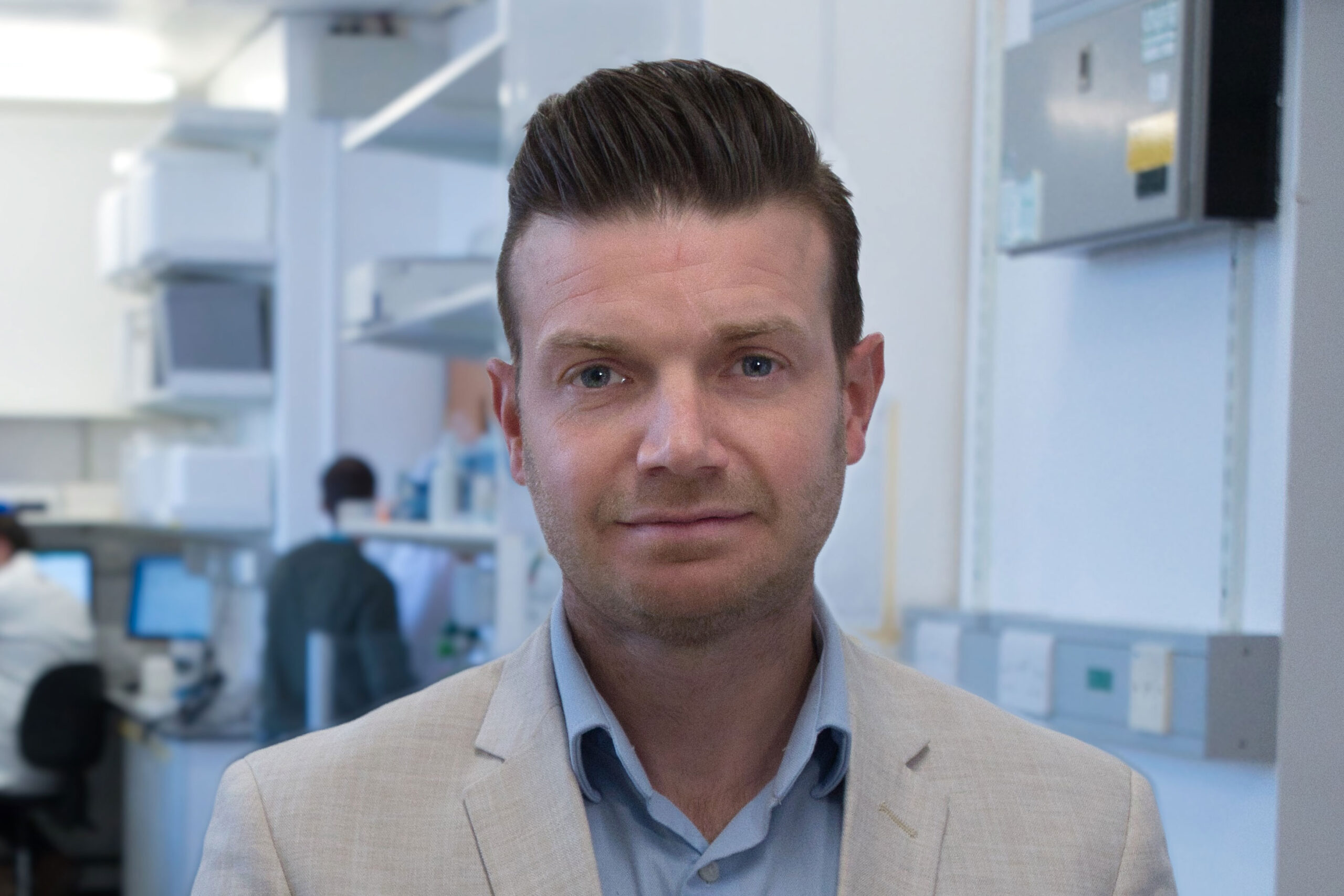Personalised medicine
Tailoring cancer treatment to individual needs.

Personalised medicine uses detailed information about a person’s cancer to improve treatment.
Cancer cells have unique genetic changes, or mutations. These differences mean that each person’s tumour has its own genetic makeup, influencing how the tumour behaves and responds to treatment. Personalised medicine aims to develop and match specific treatments that work best for these specific genetic changes.
Professor Richard Gilbertson co-leads the Minderoo Precision Brain Tumour Programme, using genomic data to guide treatment for aggressive brain cancers. This programme will trial genomic-based therapies with 225 patients at Addenbrooke’s Hospital, aiming to integrate precision medicine into routine NHS care.
The Brenton Group has worked with NHS England to incorporate whole-genome sequencing into treatment plans for High Grade Serous Ovarian Cancer, using genetic signatures to guide decisions.
The Personalised Breast Cancer Program, founded by the Caldas Group and now led by our Affiliated Clinical Faculty member Jean Abraham, uses real-time genome sequencing to tailor patient care and has expanded to sites nationwide.
We aim to further explore tumour diversity and develop genomics to predict both relapse and effective treatments, improving patient outcomes through personalised treatment.
Impact
See all case studies-

Increasing the uptake of genetic testing with ovarian cancer patients
The DEMO project aims to increase genetic testing for ovarian cancer patients by addressing language barriers and providing tailored resources.
Find out more -

Personalising treatment for ovarian cancer patients: BriTROC-2
BriTROC-2 is a nationwide project developing personalised treatments for women diagnosed with High Grade Serous Ovarian Cancer.
Find out more
Related News
See all news-

1M to advance AI powered personalised ovarian cancer care
19th February 2026
Researchers from our Brenton Group are part of an international team awarded the Global Ovarian Cancer Research Consortium’s inaugural AI Accelerator Grant.
Find out more -

Targeting paused cells could improve chemotherapy for lung and ovarian cancers
3rd February 2026
New research published today in Nature Aging by scientists at the University of Cambridge sheds light on why some lung and ovarian cancers stop responding to chemotherapy, and how this resistance might one day be prevented.
Find out more -

Hot flush treatment has anti-breast cancer activity, study finds
5th January 2026
A drug mimicking the hormone progesterone has anti-cancer activity when used together with conventional anti-oestrogen treatment for women with breast cancer, a new Cambridge-led trial has found.
Find out more



